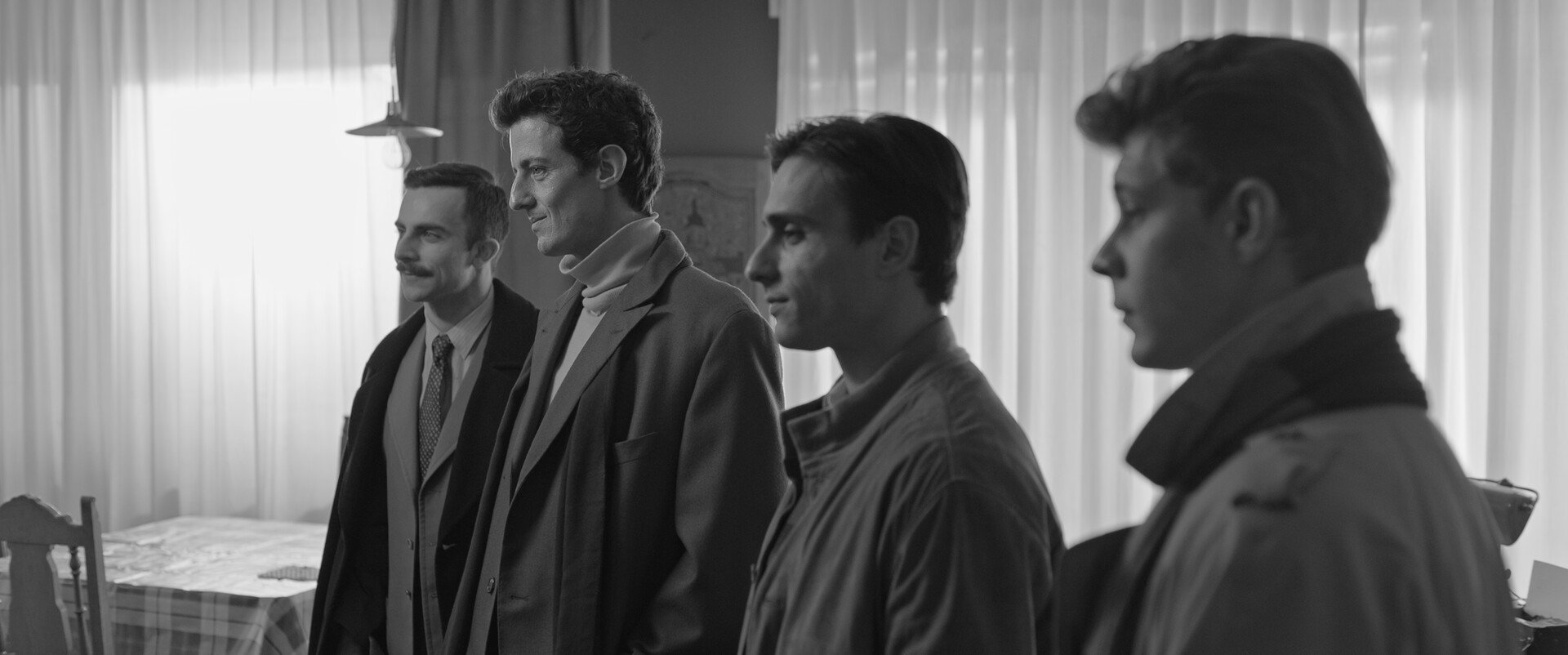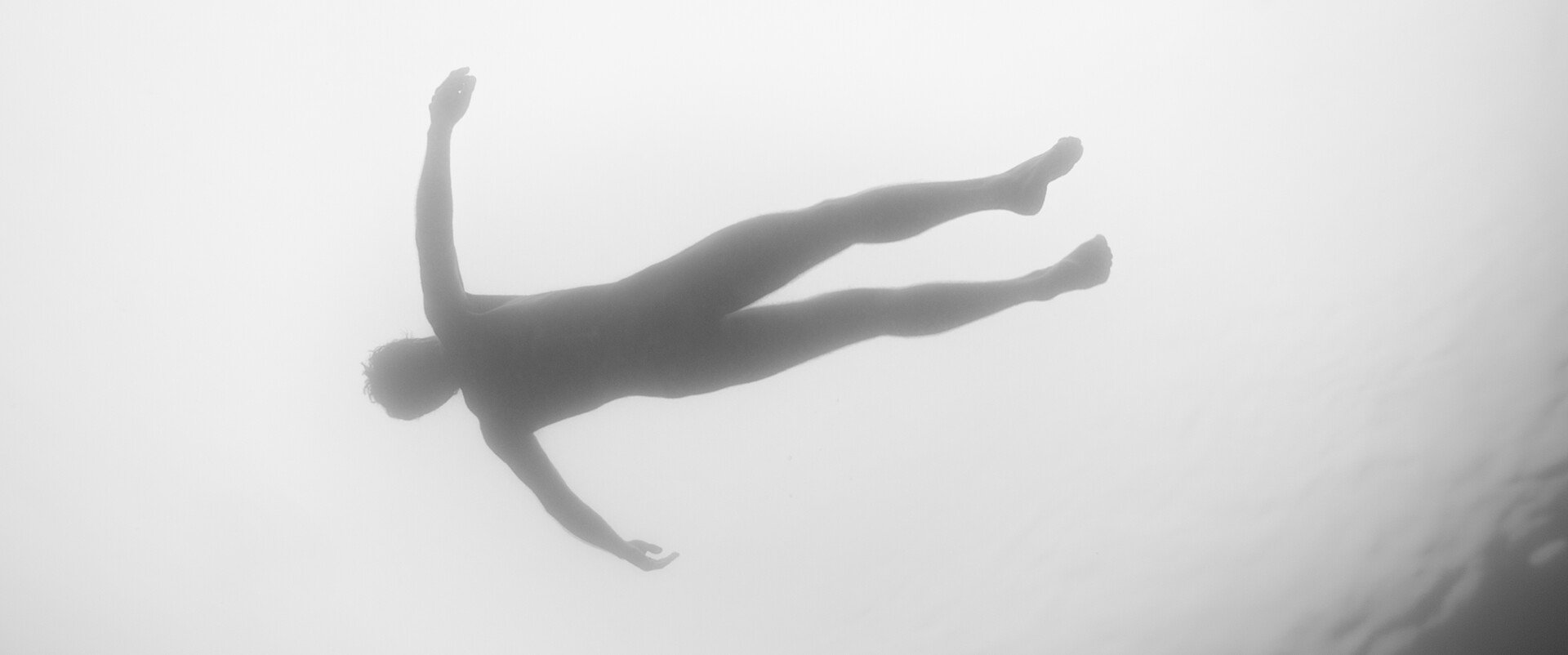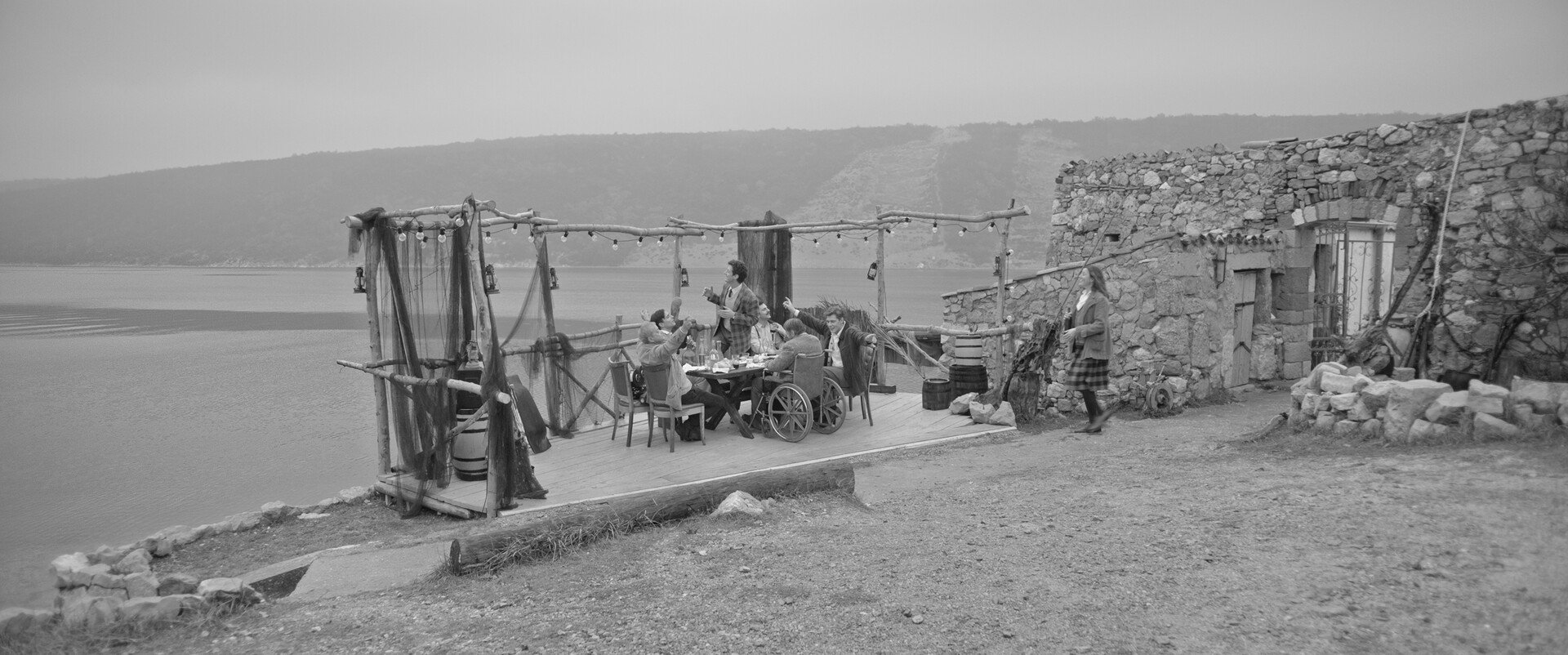Ivona Juka’s second narrative feature, Beautiful Evening, Beautiful Day, is a powerful and audacious depiction of queer persecution. It’s honestly one of the most daring films I have seen in a while — simultaneously exquisitely shot and harrowing to watch. Juka’s a gifted filmmaker who has crafted a bold and brave love story told amidst the turbulent backdrop of 1950’s communist Yugoslavia.
Four close friends join the partisans to fight against the Ustashas (Fascists) and Nazis during World War II. They also happen to be homosexual. A decade and a half later, in 1957, they’re all working in the Yugoslavian film industry and courting controversy from the oppressive communist government, led by the infamous Josef Broz Tito. Soon, their sexual identities, which were an open secret, are under scrutiny.
Filmmakers and lovers Lovro (Dado Cosic) and Nenad (Djordje Galic) are forced to weave government sanctioned propaganda into their work and an older government official, Emir (Emir Hadzihafizbegovic), is put in charge of overseeing the next movie. He is also ordered to sabotage the peder (faggot) filmmakers and crew.
Juka painstakingly shows us a contradictory world where Lovro and Nenad are accepted and loved by Lovro’s parents and basically free to be themselves, but can never show any affection towards one another in public, for fear of retaliation. The same is true for their two friends and colleagues Stevan (Slaven Doslo) and Ivan (Elmir Krivalic).
We also experience Emir’s journey from someone who has been brainwashed to believe that there is something abnormal about these men, to getting to know them and, perhaps, realizing he’s been wrong to think what he thinks.

Beautiful Evening, Beautiful Day is filled with astonishing moments of defiance, cruelty, joy and betrayal. Juka does not sugarcoat the savage treatment of her lead characters. And the entire ensemble is to be commended for fantastic work. This is a film about the importance of freedom, both personal and artistic, brilliantly realized.
BE, BD was Croatia’s International Feature Oscar Entry. So why was it so impossible to see and why has it not received more attention?
Last year, I managed to view and review 81 of the 85 International Feature Oscar contenders (no easy feat). One of the four I was refused access to was Beautiful Evening, Beautiful Day. None of my so-many emails to the film’s producers or reps (beginning in October through late December 2024) were answered. I didn’t even know the movie was queer-themed until after the short list was announced. Note: I had no issues with being given access to Croatia’s 2023 submission, Dubravka Turić’s Traces, the year prior.
And had the film been given some kind of real push, it might have had a chance at making the short list. It certainly would have had loud champions, count me among them. Croatia has submitted 34 times for Oscar consideration, every year since 1992, and has never even made the short list.
When I saw that Frameline had selected it, I was finally able to experience this truly mesmerizing film myself— twice over the course of 24 hours. I, then, requested an interview with the director via Frameline’s PR. They tried contacting the film’s team several times. And…crickets.
I find the lack of response supremely strange and frustrating. What is the reason for stonewalling? Is it politically motivated? The selection of this kind of film by Croatia proves it’s made significant strides towards queer acceptance. And the team should certainly be proud of their work and want attention.

In checking on Rotten Tomatoes, there are only three reviews up, two very recent. The one review from a major outlet is positive but contains a borderline homophobic reaction to the sex in the film. That critic makes the astonishing claim that, “The film also abandons an admirable effort to normalize the physical act of sex between two men on screen; there isn’t much visual differentiation in how rape is presented during Barren Island sequences.”
I take major issue with that assertion. Firstly, Juka’s handling of the film’s love and sex scenes are beyond admirable. She isn’t afraid to show both tender scenes between men as well as raw sexual abandon moments. And, most importantly, the heart of the film is this genuine and authentic love story between Lovro and Nenad.
Juka should be commended for having the courage to load her film with so many loving moments shared between two men —much more than in any recent American LGBTQ-themed film—as well as presenting many authentic (and graphic) same-sex scenes not just between the central characters but also between crew member Stevan and a young man he bonds with.
In addition, during a particularly jovial swimming scene along the coast, Lovro, Nenad and Ivan frolic together in the water, naked. And it’s all shot in an affectionate and sexy manner.
The horrific rape scene on Barren Island, a prison that would rival Nazi concentration camps in its barbarism, is filmed in a way that painfully depicts the abject horror of the treatment of homosexuals as less than human. Juka does not shy away from the terrible atrocities committed against gay men and how a repressed and dangerous regime sanctioned such behavior.
For the critic in question to suggest that ‘there isn’t much visual differentiation’ in how Juka depicts rape vs. sex shows a kind of reprehensible moral judgment that gay men have been fighting all their lives and a callous disregard for how sensually Juka films these scenes. Ignorant statements like these need to be called out and the use of the word “normalize” should be challenged. He also refers to the film as “reckless,” which, to me, is terribly ironic.

In a rousing and telling bonding sequence in the film, the Italian song, “Bella Ciao” is sung by our four persecuted heroes along with Emir, his accepting sister and a war-wounded friend. The Italian lyrics hail the partisans who fought against the Fascists and Nazis for the liberation of their country. As the scene progresses, the voices of the quartet of queer men builds to an almost primal-scream-demand for their own liberation. It’s a stirring, inspiring and hopeful cinematic call to end homophobia.
Juka’s bold, potent and provocative film may not be everyone’s cup of gay tea, but it makes no apologies for its own courageous desire to combat hate…through love and compassion.







![‘Pirates! The Penzance Musical’ Breakout Star Nicholas Barasch Discusses Performing On The Tonys With Seven Stitches On His Face [VIDEO]](https://thecontending.com/wp-content/uploads/2025/06/Pirates0011r-120x86.jpg)

